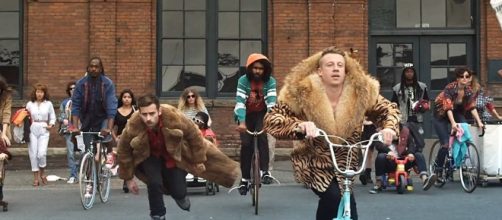One of Seattle's biggest rap duos has found themselves in trouble. According to various sources, Macklemore and Ryan Lewis are facing a possible lawsuit for allegedly copying the beat and horn melody of their hit single "Thrift Shop" from a jazz musician in New Orleans.
Paul Batiste claims that the duo's hit single heavily borrowed from two of his songs. In his statement to TMZ, the jazz musician believes Macklemore and Ryan Lewis copied elements from "Hip Jazz," and "World of Blues" to their 2012 single. Moreover, Batiste believes that the duo's other single "Neon Cathedral" lifted parts from three of his other songs.
He reportedly wants a cut of the profits from both tracks.
Not the first time
Apparently, this is not the first time that Batiste has filed a similar lawsuit to other artists. The Jazz icon has filed a $100 million lawsuit against T-Pain, Rick Ross and DJ Khaled of illegally sampling their music from the Batiste Brothers Band.
According The Guardian, Batiste claimed that the rappers and their labels copied nearly every song found on his band's catalog. Also included in the lawsuit is rappers Ace Hood and Pitbull as well as record labels such as Cash Money, Fueled by Ramen, RCA Records, Universal, Sony/ATV, Def Jam, Zomba, WB Music, and EMI Blackwood.
The 'White Privilege II' Fiasco
Although Macklemore and Ryan Lewis are not known to stir up controversy, the duo made headlines last year when they released their single, "White Privilege Ii." They agitated the rap community within 24 hours of releasing their song.
Critics and fans were not sure about the artist's motivation for the single. It reached number one on Billboard's ranks. The song explored racism and hip-hop from a white rappers' position in society where black people fight against injustice.
According to Macklemore and Ryan Lewis, the song was based on an ongoing dialogue with musicians, activists, and teachers within their communities in Seattle and other states.
The track's main draw was Macklemore namedropping famous singers for appropriating black culture. In the song's lyrics, the rapper mentioned Miley Cyrus, Elvis, and Iggy Azalea. During that time, Azalea was very critical of the song and voiced out her objections in Twitter. Her views garnered mixed opinions from other artists and fans.


